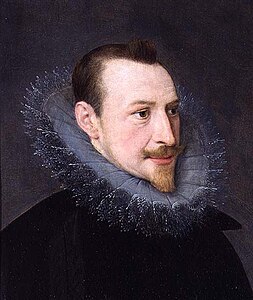Analysis of Poem 96
Edmund Spenser 1552 (London) – 1599 (London)
SHe tooke him streight full pitiously lamenting,
and wrapt him in her smock:
She wrapt him softly, all the while repenting,
that he the fly did mock.
She drest his wound and it embaulmed wel
with salue of soueraigne might:
And then she bath'd him in a dainty well
the well of deare delight.
Who would not oft be stung as this,
to be so bath'd in Venus blis.
| Scheme | ABABCDCDEE |
|---|---|
| Poetic Form | Tetractys (30%) |
| Metre | 111111010 011001 11110101010 110111 11110111 11111 0111100101 011101 11111111 11110101 |
| Closest metre | Iambic pentameter |
| Characters | 356 |
| Words | 71 |
| Sentences | 4 |
| Stanzas | 1 |
| Stanza Lengths | 10 |
| Lines Amount | 10 |
| Letters per line (avg) | 28 |
| Words per line (avg) | 7 |
| Letters per stanza (avg) | 278 |
| Words per stanza (avg) | 69 |
Font size:
Submitted on May 13, 2011
Modified on March 05, 2023
- 21 sec read
- 353 Views
Citation
Use the citation below to add this poem analysis to your bibliography:
Style:MLAChicagoAPA
"Poem 96" Poetry.com. STANDS4 LLC, 2024. Web. 27 Apr. 2024. <https://www.poetry.com/poem-analysis/9195/poem-96>.


Discuss this Edmund Spenser poem analysis with the community:
Report Comment
We're doing our best to make sure our content is useful, accurate and safe.
If by any chance you spot an inappropriate comment while navigating through our website please use this form to let us know, and we'll take care of it shortly.
Attachment
You need to be logged in to favorite.
Log In